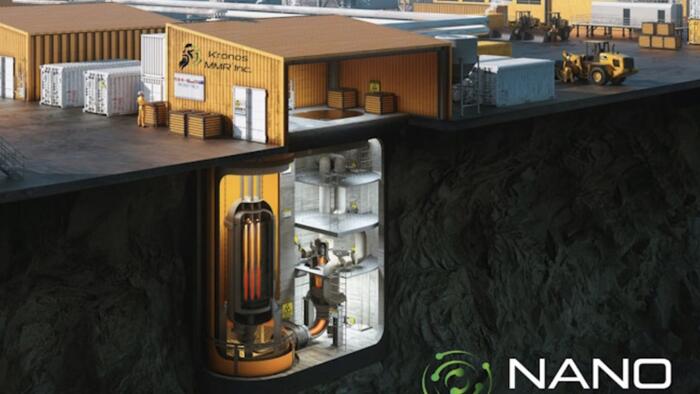
NANO Nuclear Energy has been awarded a significant contract by AFWERX, the innovation arm of the U.S. Air Force, to evaluate the feasibility of deploying its KRONOS Micro Modular Reactor (MMR) at Joint Base Anacostia-Bolling in Washington, D.C. The project represents the first nuclear microreactor installation at an urban U.S. military base, a development that could enhance energy resilience for defense operations.
This initiative comes at a time when there is increasing concern regarding energy supply, particularly as infrastructure pivots toward powering artificial intelligence (AI) data centers. The collaboration with the 11th Civil Engineering Squadron will involve comprehensive assessments of energy requirements, grid vulnerabilities, site selection, environmental impacts, and regulatory considerations. The results are expected to pave the way for accelerated deployment of similar technologies across military installations.
The KRONOS MMR is a stationary, high-temperature gas-cooled reactor designed to generate 15 MWe, operate autonomously, and endure both cyber and physical threats. Utilizing TRISO fuel and passive helium cooling, this reactor can function for decades and can be scaled through modular combinations. NANO Nuclear acquired the KRONOS MMR in January 2025, and it is also slated for research deployment at the University of Illinois Urbana-Champaign.
CEO James Walker described the contract as “another milestone for NANO Nuclear and a validation of our belief that KRONOS MMR Energy System is a leading microreactor program.” He emphasized that the reactor contributes to “resilience, safety, and carbon-free generation.” Founder Jay Yu highlighted the reactor’s capability to support critical missions under demanding conditions, reinforcing NANO Nuclear’s position as a leader in microreactor technology for defense applications.
Interest in microreactors is surging within the defense sector, with projects such as Project Pele at Idaho National Laboratory and the Advanced Nuclear Power Initiative (ANPI) involving multiple contractors. Notable developments also include plans for Oklo’s Aurora deployment in Alaska and recent agreements with Radiant Nuclear and X-energy.
In a related context, UK Prime Minister Keir Starmer recently announced a U.S.-UK nuclear agreement, emphasizing a vision for a “golden age of nuclear.” This initiative, revealed prior to Donald Trump‘s state visit, aims to streamline nuclear project approvals, create jobs, and reduce energy costs. Starmer indicated that the deal would cut nuclear licensing times from 3-4 years to approximately 2 years.
The announcement received praise from U.S. Energy Secretary Chris Wright, who acknowledged Trump’s role in fostering a nuclear renaissance. Additionally, Rolls-Royce has initiated the U.S. regulatory process for small modular reactors, while Centrica and X-energy have unveiled a reactor project in Hartlepool. Although these nuclear plans are in early stages and require financial backing and state support, they reflect the escalating demand for low-carbon energy solutions.
The broader nuclear energy sector is gaining momentum, with a reported £1.25 billion investment in U.S. financial services expected to generate 1,800 jobs in the UK. This includes 1,000 jobs from Bank of America in Belfast, as well as significant investments from Citigroup, BlackRock, and S&P Global.
NANO Nuclear’s advancements in microreactor technology are increasingly viewed as vital to the future of energy, particularly in the context of growing demands for AI infrastructure and defense energy resilience. The company’s focus on innovative solutions positions it favorably within a rapidly evolving energy landscape.







